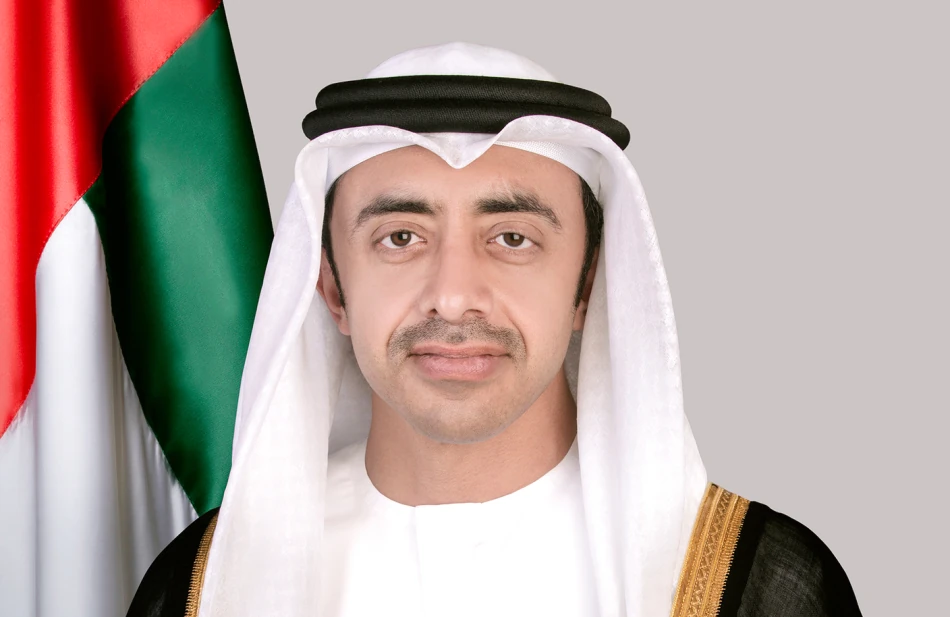
UAE Foreign Minister Welcomes Growing Support for Palestinian Statehood
UAE Foreign Minister Welcomes Growing International Recognition of Palestinian Statehood
The UAE's top diplomat has praised a wave of countries moving toward recognizing Palestinian statehood, signaling a potential shift in international momentum as the Gaza conflict continues to reshape global diplomatic positions. Sheikh Abdullah bin Zayed Al Nahyan's statement comes as ten nations prepare formal recognition steps, marking what could be a significant diplomatic turning point in the decades-old conflict.
Ten Nations Signal Recognition Intent
UAE Deputy Prime Minister and Foreign Minister Sheikh Abdullah bin Zayed Al Nahyan welcomed the intention of Malta, Canada, Australia, Andorra, Finland, Iceland, Luxembourg, New Zealand, Portugal, and San Marino to recognize Palestinian statehood. This represents a geographically diverse coalition spanning Europe, North America, and Oceania—suggesting the momentum transcends regional politics.
The UAE foreign minister characterized these moves as "historic steps" reflecting growing international support for Palestinian rights, particularly the establishment of an independent, sovereign Palestinian state.
Strategic Timing and Regional Context
This diplomatic development occurs against the backdrop of the ongoing Gaza conflict, which has intensified global scrutiny of the Palestinian-Israeli situation. The UAE's endorsement is particularly significant given its 2020 Abraham Accords normalization with Israel—demonstrating that Arab nations maintaining Israeli relations can simultaneously support Palestinian statehood recognition.
Breaking from Traditional Diplomatic Patterns
Historically, Palestinian recognition has followed predictable geopolitical lines, with developing nations and non-Western countries leading recognition efforts. The inclusion of Western allies like Canada and Australia represents a notable departure, potentially signaling shifting public opinion in traditionally pro-Israel constituencies.
Implications for Peace Process Dynamics
Sheikh Abdullah emphasized that increasing recognition could "enhance international efforts aimed at achieving just and lasting peace" and activate political pathways for resolving the Palestinian-Israeli conflict. This reflects a strategic calculation that international pressure through recognition might succeed where previous negotiation frameworks have stalled.
The Recognition Strategy
Palestinian recognition campaigns have gained momentum following Norway, Ireland, and Spain's formal recognition in May 2024. The current wave suggests a coordinated diplomatic strategy rather than isolated national decisions, potentially creating cascading pressure on other Western nations.
Regional Stability Calculations
The UAE's position reflects broader Gulf state concerns about regional stability. By supporting Palestinian recognition while maintaining Israeli relations, the Emirates positions itself as a balanced mediator—potentially enhancing its regional diplomatic influence as traditional power brokers like Egypt and Jordan face domestic pressures.
Sheikh Abdullah's call for the international community to take "similar steps" based on "moral, humanitarian, and legal responsibilities" represents a direct challenge to nations maintaining neutral positions, particularly major powers like the United States and Germany that have historically opposed unilateral recognition efforts.
Diplomatic Momentum vs. Ground Realities
While symbolic recognition carries political weight, the practical impact remains uncertain. Over 140 countries already recognize Palestine, yet this hasn't translated into meaningful sovereignty or territorial control. The key question is whether Western recognition might trigger different international legal and economic consequences.
The UAE's endorsement suggests Gulf states increasingly view Palestinian recognition as compatible with regional normalization efforts—potentially reshaping the Abraham Accords framework to include Palestinian political aspirations alongside economic cooperation with Israel.
Most Viewed News

 Sara Khaled
Sara Khaled






